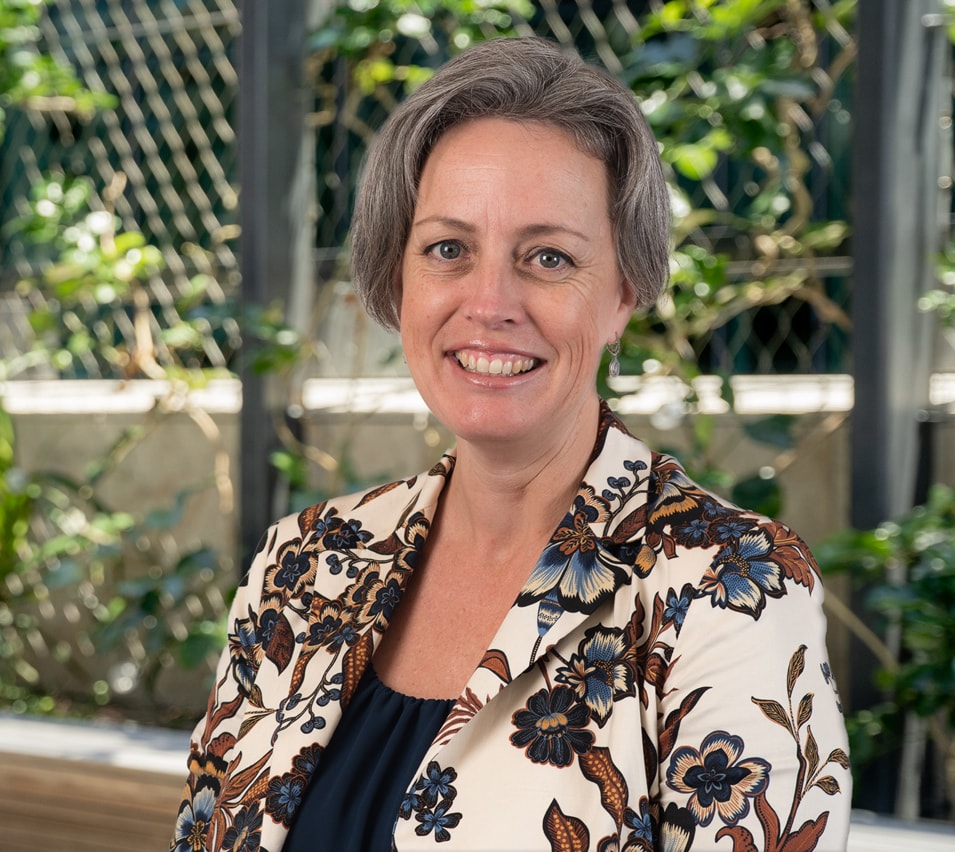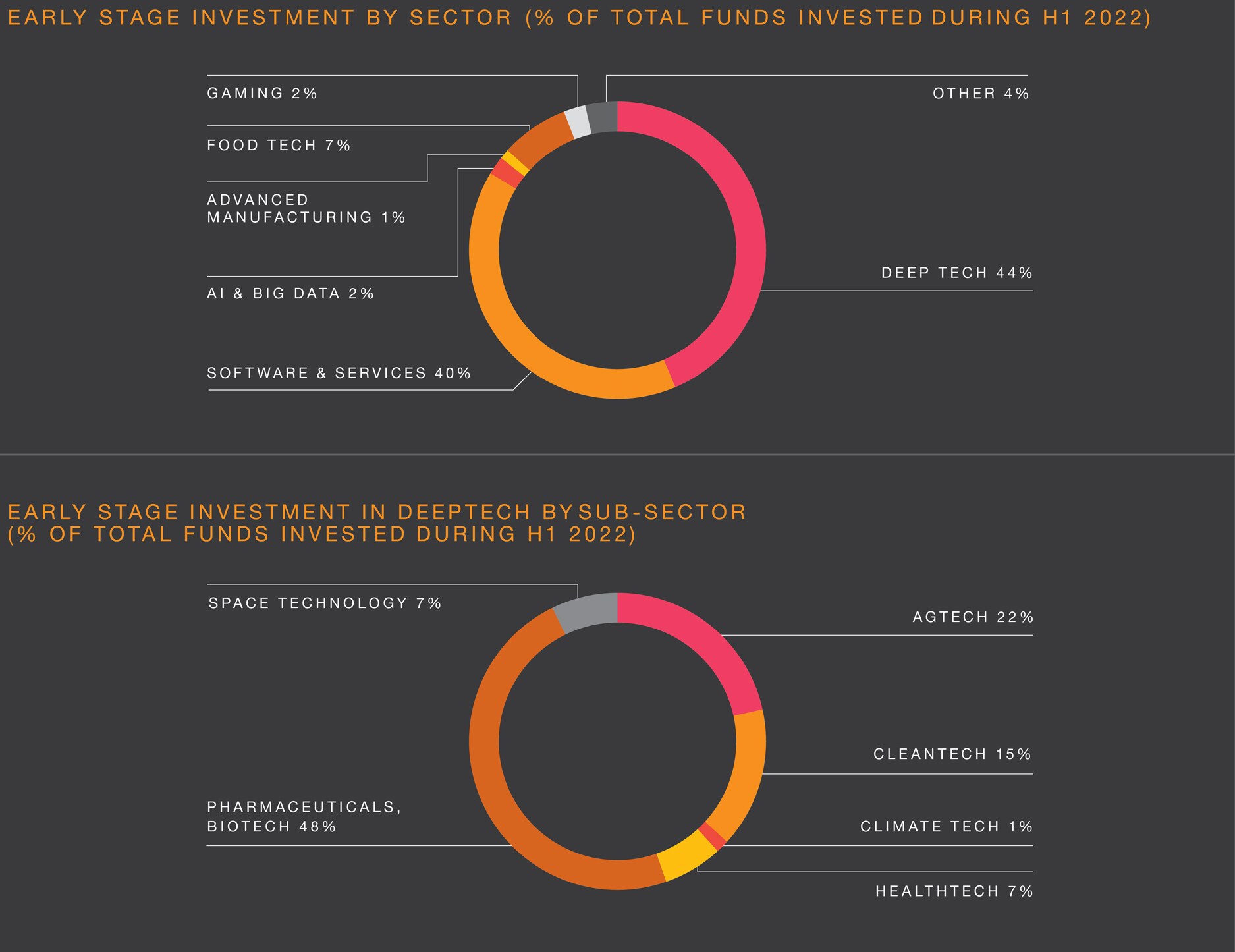{{item.title}}
{{item.text}}

{{item.text}}
Challenging times promote purposeful innovation

Welcome to the Spring 2022 edition of Startup Investment.
What’s great to see is investors identifying and supporting startups with a clear purpose and connection to their customers. By reimagining how things can be done, these companies can demonstrate clear value, resulting in a strong economic and social impact. It’s this that enables growth in times of market uncertainty, and it’s refreshing to see Veronica Harwood-Stevenson, founder and CEO of Humble Bee Bio comment on the “upturn in the philosophical and moral understanding of capital deployment,” as a trend in investment that will endure well beyond the current market downturn.
In this edition, we take a look at how market conditions are impacting Kiwi startups - with some interesting and overwhelmingly positive outlooks. We speak with FTN Motion and NZ Functional Foods - two very different companies that have overcome challenging marketing conditions to secure funding, due to their market appeal. We also explore the journey of two established startups, BioLumic and Humble Bee Bio, who talk about how having a clear purpose and connection to their customers has helped them to secure next stage funding.
All the companies featured in this edition are tracking to create value for their investors, their customers, for Aotearoa and beyond. What better reason to continue to support our startup ecosystem to ensure a thriving and prosperous future for all.
Most New Zealand startups in existence right now kicked off well before the Covid-19 pandemic and already had some reputational runs on the board in terms of development. That’s not true for Kendall Bristow and Luke Sinclair who founded FTN Motion in Wellington after we all started wearing facemasks and doing RATs.
The engineers designed and built a prototype electric motorcycle – legally a moped – that has created huge interest. Called Streetdog, the EV has a range of about 100km per charge and, depending on the electricity rate, costs less than $1 to top up.
Flying in the face of any suggestion of a financial downturn, the pair loaded their creation in a car and shopped it around “most of the angel investor groups in New Zealand.”
“We had a hard time because it is a physical product and software seems to be all the rage at the moment. A lot of investors were asking about our IP and had concerns about our product being copied.”
Kendall explains that “a couple of dudes with a bike in a car” didn’t get the traction they’d hoped for, but after some time in the Creative HQ incubation programme they were connected with Angel HQ.
“That’s where we ended up pitching and that’s also when Steve came on board as our champion.” That’s investor Steve Thornton, who says his background with EVs, the electricity industry and climate change policy ensured he developed an interest pretty early on.
“We ended up raising our first round with a decent proportion of Angel HQ funds and a bunch of private investors, but there was still a bit of trepidation,” Kendall says.
Steve agrees.
“Covid was an interesting period because it did look like it was going to be difficult to raise money. But then as we progressed, with all the money that was being pumped in, and all the assistance being provided by the government, the economy shot ahead,” he says.
“By the time that Kendall and Luke were raising the seed money, the conditions were reasonably good.”
At this point, the team caught a lucky break with some well-timed publicity in mainstream media.
“We were struggling to attract investors,” says Luke, “but we ended up having an article in Stuff and that made all the difference to us.”
What followed were pre-orders, more than could be immediately fulfilled, which provided product validation and fired up investors, making the first round easy to complete for the fledgling company. A second top-up round soon followed.
“Before that round even started, an existing investor came on board and put up half of the raise.” Other early investors also contributed more, along with a couple of new additions.
A third round in the second half of this year was over-subscribed.
“That was an interesting problem to have. We increased the raise, but we ended up having to turn investors away.”
Steve explains that early scepticism about manufacturing in New Zealand and competitiveness has since faded away.
He adds that early investors typically exhibit a preference, and a bias, towards software development here rather than making hardware.
“Ultimately, people were blown away by the product. Another important factor was evidence of the product’s market fit. The fact that we were generating so much interest and had so many orders coming through - that really helped to give investors some assurance that the guys were on to something.”
Now, with a small team on board focused on developing future markets, the company is following up on fulfilling its first 100 orders in New Zealand this year and preparing for a second tranche of 70 pre-orders to be built next year.
Beyond New Zealand, the company has set its sights on European cities with a view to supplying in excess of 10,000 units per year by 2030.
Steve and Kendall say part of the reason investors have shunned any doubts about writing cheques during a period of economic unrest is because of the inherent appeal of the product, solid evidence of market-fit, and the size of the potential market.
Steve notes there are two key trends that help to make the company attractive. One is the rise of electric vehicles over internal combustion engines, and the other is customers starting to favour two-wheeled transport over four.
Streetdog is billed as an urban transport solution, and once the 170 New Zealand orders are filled, Europe is next.
Founder
FTN Motion
Director and Chair
FTN Motion
Another startup with equally grand ambitions is Southland-based New Zealand Functional Foods.
The company was formed from an idea 12 years ago to improve arable farming returns and create better land use in Southland.
Acting CEO Roger Carruthers says the concept follows recognition that continued intensive dairying in the region at current levels probably wasn’t sustainable.
An alternative is to grow oats, which Southland is particularly good at.
Converting a farm to crops is one thing, however, turning the harvest into something marketable is an entirely different challenge, and expensive.
“Very quickly conversations turned to the production of oat milk as an alternative land use, but unfortunately it was an idea that didn’t have any capital,” Roger says.
Initially, the team behind the idea pitched to the government’s Provincial Growth Fund, but without other investment to match there was no progress. There was also a lot of work done with the Southland Regional Development Agency – now Great South.
“At the end of 2020, Sir Stephen Tindall and K1W1 became interested. That provided the seed capital and enabled us to establish a commercial board.”
At the same time, Great South also became an investor based on its earlier time and commitment put into the project. Great South holds a 49% stake in NZFF, and K1W1 the balance with a $2 million contribution.
With that, NZFF could plan and design a factory and scope out potential sites for development in preparation for its first funding round. As a result, the Ministry of Business, Innovation and Employment has now backed the project in principle with a $6 million contribution.
K1W1 put forward Wanaka-based Monique Kelly to the NZFF board. She is the co-founder of Wao, a non-profit created to inspire and enable communities to adopt more sustainable practices; and Revology which uses natural fibre composites to make products from sustainable materials.
She explains K1W1’s approach with NZFF is about enabling an entire industry to make plant-based beverages for both domestic and international markets, keeping New Zealand at the forefront of food innovation.
And those markets are growing, even faster than the business plan has allowed for. In the two years between 2017 and 2019, the domestic market for plant-based milk tripled to nearly $150 million. It’s grown even since then. Roger explains most of the oat milk used by New Zealand brands is imported, yet New Zealand is capable of producing more oats than it can ever use.
What’s missing is a lot of stainless steel put together in a way that creates a versatile factory to produce what the entire domestic market can use, as well as innovate and explore other plant-based beverage alternatives. As the company goes to the investment market, it’s ultimately seeking $60 million to build the plant and provide working capital.
Working to entice investors, Roger says the company has already secured memorandums of understanding with six New Zealand oat milk brands which either buy in product from overseas – sometimes from Europe, or intend to launch a brand in New Zealand.
“When we are operating, they’ll switch to us. And others are already enquiring. This means from when we start, we’ll have customers.”
To add more value, the company will ultimately create its own oat milk brand and products, as well as explore other plant-based beverage alternatives.
“We very much want to be a seed to cup company and you can’t do that unless you’ve got your own brand. That also means we can capture a lot more value,” Roger says.
For Monique, NZFF is an example of where New Zealand should be heading. She says consumers are becoming more conscious about the environment and as a result, the plant-based beverage base is growing fast.
“Also, at farm level, there is a move to diversify,” she says. “This is where the project has really started from. It’s looking at our soil and climate and seeing what we can grow best here.”
Monique points out that globally, regulations designed to curb climate change are impacting food producers of all kinds, and they will happen in New Zealand too.
“We need to find options for what we’re growing and how we’re growing it. It’s about future-proofing. While it’s not the only solution, it’s one that’s helping to pivot our food system and provide value for primary producers.”
New Zealand needs to be part of that change or be left behind and, according to Monique, many other countries are leaping ahead, including parts of Europe, the UK and also the US.
“We need to be up there with innovation and, while it’s a significant investment in this project, it’s not when you look at what the impact can be.” Already there is investment interest from funds that have a strong ESG element to them.
“They’ve already got a pre-condition that their funds are going into investments that have a strong environmental and social impact.”
Environment-positive investments are becoming mainstream, Monique says, and often a requirement rather than just achieving portfolio balance.
“If you’re looking at where the hockey puck is going, investments like this are becoming mainstream and quite quickly. There’s way more risk looking at fossil fuel-intensive industries than there is investing in us.”
Add in New Zealand’s providence story, more consumers “looking under the hood” of the products they buy, and better understanding of what good nutrition looks like and Monique is struggling to see any downside.
“This is because functional food isn’t a luxury, it’s one thing that everyone needs.” NZFF has opened a data room and presented an investment memorandum, and is talking to potential investors as well as seeking a strategic partner.
The plan is for NZFF to be up and running by the end of 2023, with a capacity to produce 40 million litres of product a year initially. A goal of being carbon neutral by 2025 is also set right across the value chain.
Acting CEO
NZ Functional Foods
Director
NZ Functional Foods
Capital consciousness is always part of the discussion, according to BioLumic founder Dr Jason Wargent.
Programming plants with light is the premise behind Kiwi startup BioLumic. In short, the team at the Palmerston North-based company has harnessed UV light to improve plant health, growth and yields for a variety of crops without adding chemicals or using genetic engineering.
In June, the company closed its series B funding round, raising USD$13.5 million to be spent on accelerating commercial growth.
Jason and investor Dean Tilyard from Finistere Ventures believe funding targets might not have been met if the raise was launched just a few months later.
“It’s quite surreal,” Dean says. “It’s really been up and down being in a startup. If you think about the latest stage of the economy compared with the previous two years, we had Covid come and investors basically battened down the hatches, before embarking on the largest expansion of private investment in history over the next two years.”
“We’ve had some shocks this year and now we’re in uncharted waters, so it’s very hard to pick.”
Using science to better feed the world, Jason says the BioLumic team is clear on the company’s purpose and how valuable capital is for it to continue on its journey, particularly given the turbulent world situation in terms of food security.
“That sense of purpose, our mission, outstrips any macro-economic situation that’s occurring,” Jason explains. “Our path has a clear purpose and that will outlast any particular sentiment in the market at any one time.”
However, both he and Dean say that the realities of the economy and the gaze of investors – and future investors – remain an important consideration.
“Following the series B raise, our platform has to demonstrate clear value to investors,” Jason says.
Dean adds that everyone within the company is aware of the challenges with capital and understands what they're working with, which means everyone is looking for an opportunity to make the best use of the runway and take a conservative approach to spending.
“It’s a capital scarce environment, so runway is very important to the company. We have limited funding in some areas as part of our response to the economic climate right now.”
The pair are happy with the result of the funding round – it was within the sought-after range – but they’re making no assumptions that further capital will be easy to achieve.
“Every dollar is a soldier,” says Jason. “We’re always thinking that way, and you have to keep that tactical reappraisal all the time when investing your investor’s money to grow a company,” he says. It’s not just about operating with constraint – or restraint – though. Jason says the current economic climate induces creativity which can lead to innovation.
“That can sometimes get you to a more insightful, more efficient way of doing things better than if you just spend a bunch of money on something.” Dean adds it’s important to recognise that more than just the capital markets are impacted by current constraints and future concerns.
“It’s the markets, our customers and partners as well. They’re all going through the same issues as us, looking at their business and prioritising.”
Founder & CSO
BioLumic
Director
BioLumic
How investors prioritise is a key factor for Kiwi deep tech company Humble Bee Bio, which has a bold but crucial objective to create a more sustainable alternative bioplastic to replace current harmful plastics.
The company is focused on recreating the biology of the Australian masked bee. Unlike honey bees, they are loners, don’t produce anything we can smear on toast, but instead create a nesting material with many properties in high-performance plastics.
By understanding the bee’s genetic code, the team is working to recreate its nesting material using a process of synthetic biology. The resulting high-performance sustainable bioplastic aims to compete in multiple markets, such as sustainable fibres and durable water repellent finishings for textiles.
Humble Bee founder and CEO Veronica Harwood-Stevenson explains that unlike software, science cannot be bootstrapped. It is expensive - for example it takes much longer than shipping an app - so it can be challenging to inspire confidence in an early-stage company.
“There has been a shift from investors on what pre-monies are appropriate for early-stage businesses, especially for deep-tech companies, in terms of making sure their cap table is viable for the subsequent rounds required to get their technology to market.”
Some deep tech companies that spin out from university research have advantages provided by the early tertiary institutional input, although this can create cap table challenges. However, these spin outs can be more attractive to investors or angels because they’ve already had a degree of backing and are closer to commercialisation.
Earlier this year, Humble Bee raised $5 million in convertible notes as part of its series A round, and is working on a proof of concept as it prepares for further rounds. Veronica says the funding round, which closed in March, was a little ahead of a rise in caution in the markets, but a positive outlook remains, particularly for environmentally savvy startups.
“Yes, there’s a downturn in the market, but there’s an upturn in the philosophical and moral understanding of capital deployment, which works to our advantage,” she says.
“When you speak to people about the 400-plus chemicals they’re exposed to that are known hormone disruptors and carcinogens, and ask them if they think it’s ok, and then ask them if there is opportunity and money to be made in creating ingredients that replace them with safe and circular ones…”
“...Yes, there’s an emotional connection beyond the business case. But the business opportunity is in the trillions.”
And while Veronica agrees there is a degree of “reputational laundering” occurring within some investment companies, there are also many people who have been personally impacted by how the world has been making things until now; and there needs to be a shift.
Early Humble Bee investor Greg Sitters, Matu Group managing director, says that despite the green credentials of the company and others with sustainable visions, deals are becoming harder to close.
He says the impact of Covid and other pressures are starting to flow through and big funds, especially, are re-evaluating their exposure to tech companies and re-balancing their books.
“Rounds are getting harder to close and lead investors are getting slower to sign up. Funds or investors who have more typically been syndicate partners are either being more cautious, putting in smaller cheques or just sitting tight,” he says.
“This is having an impact on the bigger New Zealand VCs and their carrying capacity, along with what they actually do with the money.”
Greg says companies involved directly in tech and science are faring better than, for example, SaaS companies, which have sometimes been overvalued, leading to corrections for the funders who are exposed.
“I think there’s been a far better balance in valuing companies [like Humble Bee] by the investment community.” He adds that wise use of money and demonstrated success in hitting milestones, alongside well-protected technology will still attract funding. “If money has been ill-gained and ill-spent, companies will struggle.”
In Humble Bee Bio’s case, Veronica says the company didn’t build official milestones into its funding round, but operates with clear targets anyway.
“That has given confidence and made it easier to communicate what we’re trying to achieve. It’s made it easy for investors to come on the journey with us.” Greg says that approach helps investors hugely.
“When you’re asking someone to come in at the next stage, you want to show them how you’ve been spending the money from the previous round and build the greatest value.”
It’s not just about funding though. Talent is just as critical and Greg says a lack of it hamstrings startups.
“There should always be someone that provides the balance and can mentor the CEO. This is vital, and it means you have to go international because there aren’t enough local people.”
Veronica takes it a step further and points out that some business training opportunities, including mentoring courses, aren’t always run by people who have a lived experience.
“I’ve found that access lacking. Getting the experience of those who have done it before can give you the examples and have a growth mindset of someone who has scaled and exited – that’s something we’re short on in New Zealand.”
CEO and Founder
Humble Bee Bio
Managing Director
Matu Group
We appreciate the following investors who contributed their H1 2022 data: Alt Ventures, Angel HQ, Angel Investors Marlborough, Arc Angels, Blackbird Ventures, Brandon Capital, Canterbury Angels, Cure Kids Ventures, Enterprise Angels, Finistere Ventures, Flying Kiwi Angels, GD1 Fund, Hillfarrance VC, Icehouse Ventures, Impact Enterprise Fund, Launch Taranaki, Mainland Angels, Matu Fund, MIG Angels, Movac, Nelson Angels, NZGCP, Nuance Capital, Otago Angels, Outset Ventures, Pacific Channel, Punakaiki Fund, Quidnet Ventures, Snowball Effect, Sprout Agritech, UniServices and WNT Ventures.
{{item.text}}

{{item.text}}














